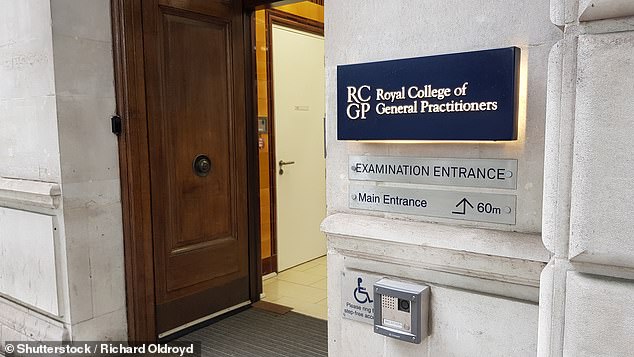Britain’s largest GP organisation votes to ban controversial ‘cheap doctors’ known as physician associates





Britain’s largest GP organisation has decided to ban physician associates (PAs) from working in practices.
It follows months of vocal concern among medics about the NHS’s increasing reliance on so-called ‘cheap doctors’, which has been linked to three deaths.
These employees have not completed medical training, but are following a two-year postgraduate training in addition to their degree in, for example, biomedical sciences.
The college, which represents more than 50,000 GPs, said almost two-thirds of voters agreed that PAs should not be allowed to work in practices.
The NHS employs over 3,500 PAs in England and plans to increase this number to 10,000 by 2036. There are currently around 2,000 working in GP practices across the country.

The council, which represents more than 50,000 members, said almost two-thirds of voters agreed to reject the role of working in practices.

Emily Chesterton, pictured, was just 30 when she died in 2022 after a PA missed a blood clot. The actress was seen twice by the same PA, who told her she was suffering from anxiety and long Covid. Her parents say Emily was not told at any point during the appointment that the person she was seeing was not a GP
Today’s decision by the RCGP to ban PAs comes just weeks after a university investigation found that more than 80 percent believe the use of PAs in primary care practices has a negative impact on patient safety.
The ‘disturbing’ results also showed that half of respondents said they were ‘aware of specific examples of patient safety being compromised by PAs’ work’, including instances of misdiagnosis and incorrect prescribing.
Professor Kamila Hawthorne, President of the Royal College of GPs, said today: ‘During today’s discussion in the Council it became very clear that we had to speak out against the role of PA within general practice.
“I am pleased that our procedures allow us to do this in a collegial and democratic manner.”
First introduced in 2003, the PA is now responsible for taking medical histories, performing physical examinations, analyzing test results, and making diagnoses.
But they must always work under supervision.
PAs may not prescribe medications or refer patients for procedures.
Recently, however, several high-profile cases of patient injuries following consultations by PAs have made the news, resulting in three deaths.
In 2022, 30-year-old actress Emily Chesterton died of a blood clot after her assistant dismissed her symptoms as anxiety and gave her pills instead of referring her to the emergency room.
She mistakenly thought she had been seen by a GP at her practice in North London, but in fact she had already been seen twice by a colleague.
The GP practice where Mrs Chesterton was seen, the Vale Practice in Crouch End, no longer employs assistants.
Her parents are now warning of the dangers patients could face as plans arose to expand their role.
Norman Jopling, 79, from North London, suffered a serious brain haemorrhage after an assistant wrongly told him not to worry about his painful headaches.

She died in November after suffering a cardiac arrest. A coroner concluded her life could have been saved if she had been taken to A&E. The GP practice where Mrs Chesterton was seen, the Vale Practice in Crouch End, has now stopped using PAs. Her parents are now warning of the dangers patients could face amid plans to expand the use of PAs.

Norman Jopling, 79, from north London, suffered a serious brain haemorrhage after a PA wrongly told him his painful headaches were nothing to worry about. His wife Maureen, right, accused the NHS of ‘trying to cut corners’ by making PAs ‘carry out complicated tasks they are not qualified to do’
His wife Maureen later accused the NHS of ‘trying to cut costs’ by having PAs ‘carry out complicated tasks for which they are not qualified’.
Over the past year, there have also been reports of PAs filling prescriptions, discharging patients without a doctor’s permission, and even participating in brain surgery.
In February, Baroness Brinton, a Liberal Democrat member of the House of Commons, told a House of Lords debate that doctors had reported “70 cases of avoidable patient harm and near misses caused by PAs”, including “fatal accidents, missed diagnoses leading to terminal illness, sepsis and heart attacks”.
Earlier this year, the doctors’ union the British Medical Association (BMA) also called for PAs to be banned from diagnosing patients.
It was argued that PAs should be seen as ‘physician assistants’, assisting with simple practical procedures, administrative tasks and working with patients in a supportive and specific role.
They should also never perform complicated or life-threatening procedures or be placed on a doctor’s call.




